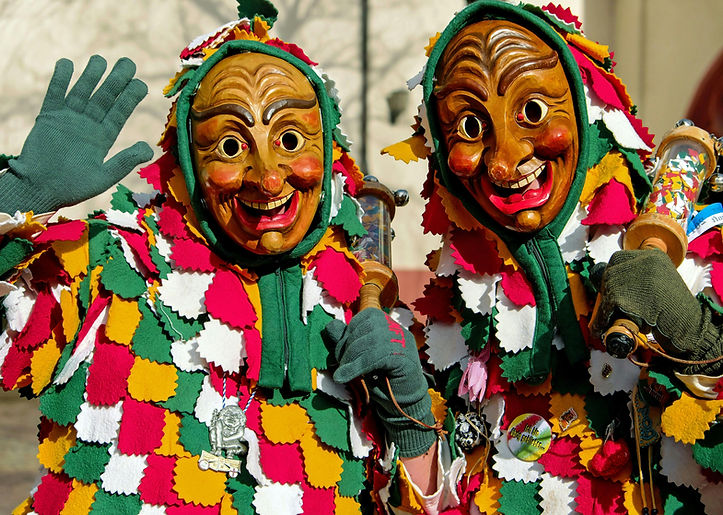Magazine

Karneval: Germany's obsession with Native Americans
Olivia Marshall
Monday, 19 February 2024
In Germany, it's common for people to dress up as Native Americans at annual Karneval parades. Is it time to put a stop to this tradition?
With the passing of Ash Wednesday, Germany’s “fifth season” has come to an end, marked by Karneval, also known as Fasching in Austria and southern Germany. Karneval is celebrated by dressing up and dancing through the streets. With parades, floats, and of course drinking, traditionally allowing Christians to enjoy themselves before the start of lent.
One of the Germans’ favourite costumes has turned out to be Native American dress. Thousands can be seen wearing tunics and dresses, feather headdresses and face paint. Certain costumes are legally prohibited at Karneval: notably those with overly realistic weapons, such as pirate swords; police costumes which too closely resemble the uniform of the real German Polizei; as well as anything related to the Nazis; but dressing as other cultures is deemed to be acceptable. Due to a long tradition of wearing Native American costumes, it seems a lot of Germans don’t consider this to be problematic: but it repeatedly catches the attention of the foreign public, who are often outraged at its acceptance in Germany.
So where does the tradition come from? Germans’ fascination for Native American culture is based in the widespread popularity of German author Karl May’s late 19th century adventure books featuring Winnetou, an Apache chief, and subsequent films in the 20th century. The books were so popular that the Nazis didn’t ban them, despite non-white main characters. This interest lives on in Germany, resulting in this trend that is seemingly unaffected by any criticism that it receives.
Whether or not these costumes are acceptable is widely discussed in German media and routinely causes backlash from non-Germans, yet they still seem to be a firm favourite for those of all ages. This year’s Karneval caused some contention on X (formally Twitter). User @sagdocheinfach shared a photo of her Native American costume, causing heated debate in the replies and quote tweets, with some claiming it to be cultural appropriation and racist, others considering it a way to promote and share Indigenous culture.
Dressing up as other cultures can often be a tricky subject nowadays and is probably best avoided, so why are Germans sticking with this tradition? Many Germans are genuinely fascinated by Native American culture and think that dressing in this way is acceptable as they are celebrating the culture. It is not their intent to make a caricature out of or mock Native Americans and so, in their eyes, they are not causing any harm. There’re no significant Indigenous presence in Germany, so they lack contact with cultures like this and there is a lack of awareness and education meaning even well-educated people genuinely see no wrong in their costumes.
A big problem with these costumes is that, it can feel as though they are treating this group of people as a plaything, as if they are mythical or only existed in the past. In addition, Native Americans don’t look one specific way or have one specific culture; there are hundreds of Indigenous tribes and the costumes worn can be seen to play to stereotypes. If Germans really are so interested in Native American culture, shouldn’t they perhaps invest their time in speaking up about issues these groups face rather than simply dressing up as them, or at the very least, buy authentic Native American-made clothing and jewellery rather than wearing stereotypical costumes?
Link to tweet: https://twitter.com/sagdocheinfach/status/1756258406732603787
Copyright free images via Pexels.
For more content, follow us on Instagram, and like our Facebook page for more articles and information on how to join the Lingo Team.
Have an article ready to send in? Submit it here
Barbara Dawson
Lovely tasty dish. Try it you won’t be disappointed.
Time Published
Aunty Liz
Very tasty and cheap. I often have this for tea!
Time Published
BETTS
Being a bilingual family (French mother and British father,) living in France I thought your article was extremely interesting . Have you research on bilingualism ? It seems that when the mother is British and the father French and they both live in France their children seem to be more bilingual than when the mother is French and the father is British . This is what we called mother tongue , isn't it ?
Time Published
Niamh
Such an interesting article!
Time Published




